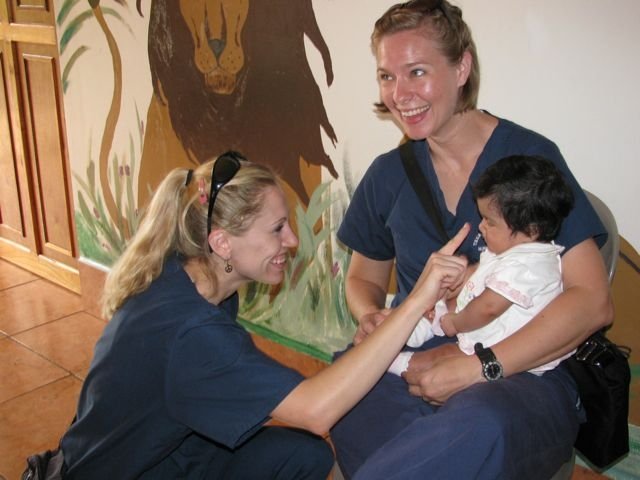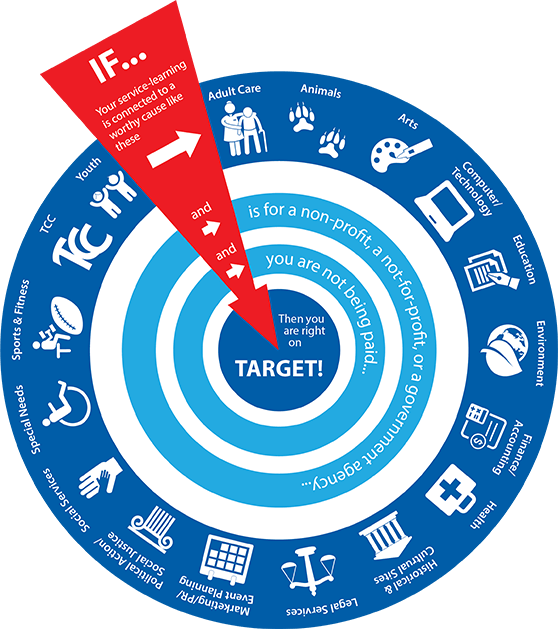Service-Learning
Service-Learning at TCC connects students with community needs, enhancing learning through volunteer work and reflection.
What is Service-Learning?

Service-Learning is a form of experiential education characterized by:
- Student participation in an organized service activity that reinforces specific course learning outcomes.
- Student identification and response to community needs.
- Structured time for student reflection and connection of the service experience to learning.
Students' Service-Learning hours can be used toward Tulsa Achieves hours.
How do I know if what I'm doing can be defined as Service-Learning?

If your service-learning is connected to a worthy cause like these:
- Adult Care
- Animals
- Arts
- Computer and Technology
- Education
- Environment
- Finance and Accounting
- Health
- Historical and Cultural Sites
- Legal Services
- Marketing, Public Relations, and Event Planning
- Political Action and Social Justice
- Social Services
- Special Needs
- Sports and Fitness
- TCC
- Youth
And, is for non-profit, a not-for-profit, or a government agency...
And, you are not being paid...
Then you are right on Target!
Service-Learning Highlights
Share your meaningful Service-Learning experiences working with a community partner.
Take the Service-Learning Orientation
Finding a Community Partner
- By location using Google Maps
- Through TCC Give Pulse
General Appearance Information
Personal appearance makes a strong impression on the attitude of those you serve about you and TCC. It is always a good idea to ask if there is a dress code at the community partner site. In addition to the dress code, consider the following guidelines:
- Clean comfortable clothing.
- Only closed-toed shoes with good support.
- Appropriate, presentable personal grooming and hygiene. In some cases, especially when dealing with food, long hair should be pulled away from your face.
- Clothing that promotes a political agenda, band, questionable messages, or advertising.
- Flip flops.
- Revealing or tight-fitting clothing, tank tops, or low-cut shirts.
- Large, bulky jewelry that could get caught in clothing or hair.
